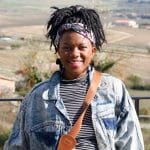
By Sojourner White
Since fellowships are great opportunities to kickstart your career or even pursue a new one, they are popping up everywhere nowadays. Whether you are post-high school, post-college, or mid-career, fellowships can be transformative experiences. From engineering and business, to education and the arts, there seems to be a fellowship for everyone in every field to seek new career adventures. Many are fully-funded experiences, include professional development options, and a lot of them cover your traveling expenses related to the fellowship too.
Yet, for as much as people convey the importance of fellowships and the extensive application process that comes with them, some things go unsaid. As someone who received a Fulbright Fellowship in 2016, I’ve had a lot of time to process my experience and how it shaped my current career. For everything advisors and alumni tell you about fellowships, there’s a lot they don’t may not mention either. If you are applying for a fellowship, or even debating between a few, here are a few things you should know about pursuing one.
1. You learn how to become a storyteller
Marketing, in its most natural form, is all about storytelling, and the fellowship process is no different. Though it may seem like a stretch, fellowships are all about marketing yourself and key life experiences. For example, one of the best tips given to fellowship applicants is to write down their life experiences that led them to the fellowship in question. Through that process, you write about the skills acquired with each experience, how it shaped who you are, and how it shaped your career interests and passions. Thus, (part) of your story is now in written form.
Knowing how to brand/market and tell your story is one of the best skills to possess, especially as you move throughout the workforce. However, it is easy to lose yourself in the process because you are so focused on showing you are the best candidate. Remember that fellowships choose people, not resumes, recommendations, or CVs. Own your experiences, the lessons you’ve learned, and your aspirations for the future. Your story will naturally flow in the end and once you win the fellowship your story will continue.
2. The impact lasts far beyond your contract
In the midst of collecting all the materials to apply for a fellowship, you can get so caught up in the present that you don’t realize the possible long-term impact of the opportunity. Yes, there are the career outcomes you may discuss in your application. However, there are also more personal ways you can and will be affected by the fellowship process and overall experience. They inspire you to think about your ideal work environment, personal leadership style, and the type of people you may want to work with in the future. Fellowship programs are as much about leadership development and personal development as they are about professional development.
Amongst the new skills you’ll acquire and the old ones you refine, fellowships can also inform what kind of leader you will become. Four years after finishing my own Fulbright experience in Spain, I am still processing how it affected my post-fellowship opportunities such as graduate school and AmeriCorps. The people you meet, the professional connections you maintain, and the way you adapt to the work at hand can show you who you are and what you value. Commit to the process.
3. The ups and downs of navigating fellowship friendships
When you gather a cohort of people, from the same country, city, or even different geographical regions around the world, interpersonal relationships become very important. Fellowship friendships can be great amidst adjusting to the program and getting acclimated to the work, and it’s exciting to meet more new people who share your passions. Depending on how the fellowship program is structured, you all can end up spending a lot of time together inside and outside the formal cohort gatherings.
Most people you meet will be great and possibly become friends with or at least maintain a connection with post-fellowship. But, not to be a debbie downer, you may not click with everyone in the program either. This can seem uncomfortable at times, especially since most fellowships bring “like-minded people” together. Similar to navigating friendships outside of the fellowship space, interpersonal relationships can shape your experience too. Not getting along with everyone is natural, as conflict is bound to happen in a tight-knit fellowship community. Just be aware of your own space, feelings, and know whom to talk to in your program if something arises.
4. If you don’t get the fellowship, still put it on a resume
Now, before you write this one off – let’s break it down. Many fellowships have multiple rounds until they find their ideal program candidates and cohort. Getting through the first, second, or even third round shows lots of potential to other professional opportunities you pursue. While you may not write it in on the “relevant experience” section of your resume or CV, you can add it to your “honors and awards.” You shouldn’t let all that hard work go to waste! In that section, just be sure to distinguish that you were a “finalist,” “semi-finalist,” or “interviewee.” It’s good to play up your strengths, and being a Fulbright semi-finalist, for example, is still writing down!
In conclusion…
Applying to a fellowship may seem daunting, and, yes, there is a possibility you will not be awarded the opportunity in the end, but don’t let that discourage you. Throughout the process, you are bound to learn something new about yourself and even acquire new skills along the way that you can use elsewhere. Going through a fellowship process is good practice for future endeavors, and if you receive the award, you never know where the opportunity will lead. Go for it because you never know the impact it will have on you in the long run!

© Victoria Johnson 2020, all rights reserved